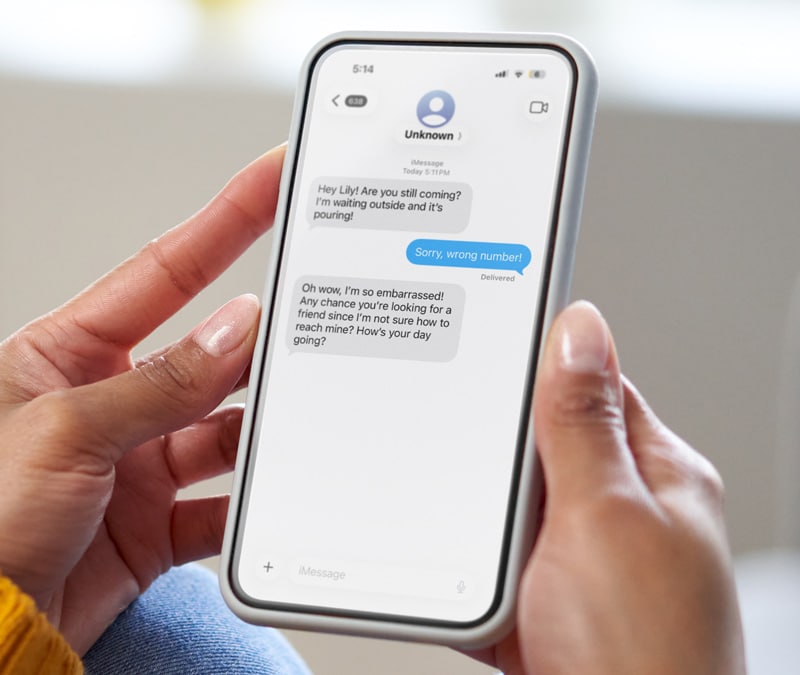Norton's playbook for a Cyber Safe playoff season
Cheers reverberate through stadiums, coolers are filled to the brim, and the TV is broken beyond repair. This can only mean one thing—it’s time for playoff season! As the teams prep for battle on the playfield, you should be preparing your own digital defenses.

Whether you’re a diehard fan, or you watch once a year for the tear-jerking commercials with puppies and horses, you know that football is a primetime American tradition. Millions sit in parking lots across the country every Sunday grilling, playing cornhole, and awaiting kickoff. And, like many sports around the world in their final events, even more will tune in online to watch their squad battle for supremacy.
An unimaginable amount of training and preparation goes on behind the scenes before the first play. Each week, coaches take the time to walk their players through film on the opposing team. It’s critical to recognize what dangers the other teams pose and study how to score against them.
That’s why, just like a seasoned quarterback scanning the field for a blitzing linebacker pre-snap, we’re here to provide you with a comprehensive scouting report on the online threats that stand ready to pummel your devices and wreck your wallet this football season.
Fake tix and a pick-six
Picture this: The QB recognizes single coverage. His speedy wide receiver is one-on-one. He takes the snap, winds up, and delivers a perfect rainbow pass down the sideline…only for the roaming free safety to pick it off. It’s heartbreaking.
This is what it’s like when you show up to a big game you’ve been looking forward to watching in person, only to be turned away at the gate because someone sold you a counterfeit ticket. Ticket scams are on the rise during this time of year to lure you in with the promise of a good deal. Even if you think you’re buying legit seats from Ticketmaster, it’s important to double-check before a scammer dances all the way to the endzone with your cash in hand.
Your game plan against ticket scams
Only buy tickets through verified sources. You always check the weekly injury report, and you should check for a secure connection when making a purchase online. You should also never purchase tickets from third-party sellers before researching their reputation and reading reviews from other buyers. Look for any negative feedback or reports of fraudulent activity.
Don’t fumble your personal information
What is one of the first lessons a coach teaches young players? Hold onto the ball! This is ingrained into every offensive player's head for the rest of their playing career. Yet, there are still plays when a running back is striding toward the goal line and is already thinking about which dance move he’ll perform after scoring. Then, out of nowhere, a defender sneaks up behind him to peanut punch the ball loose and cause a fumble.
It's exactly like what happens when you click on suspicious links for official team merchandise that you find in sketch-looking emails.
Basic phishing emails are sent by fraudsters impersonating legitimate companies and are designed to trick you into providing financial information or clicking a link that appears legitimate. Once you click, malware or other viruses could be installed directly onto your computer, allowing hackers to steal even more info and take control of your devices.
Your game plan against phishing
First off, don’t open any emails that are from unknown senders or appear too good to be true. If you don’t remember entering a contest to win free tickets, then you probably didn’t. Don’t let the dream of sitting on the 50-yard line lead to a scammer emptying your bank account. You should also never click any gibberish-looking links or attachments, and always have security software like Norton 360 Deluxe on the bench as a backup option.
Avoid the double-doink delivery
The game is on the line. There are 3 seconds left on the clock and the defense just used its final timeout to ice the kicker. Finally, the ball is snapped, the hold is good, the kick is up, it’s on the way, and it is…bounced off the goalpost. No good!
That crushing let-down is what it’s like to be the victim of a non-delivery scam. This type of fraud occurs when you come across the perfect game day merch online at a good price. You put the item in your cart, and checkout. But then, you never receive a tracking number, your package never arrives, and the seller vanishes into thin air. You do everything right and still lose in the end.
Your game plan against non-delivery scams
You can avoid this scam by sticking to reputable, well-known shopping sites. If you decide to browse and come across a merchant you have never used before, do the research. Check for a physical address, a customer service phone number, and a professional-looking site. Only do business with secure sites. Look for the lock icon in the corner of your search bar, and make sure the URL starts with “HTTPS”.
And if you’re ever unsure about a message about scheduling delivery, or any other message that seems like a mixed signal, it’s never a bad idea to check with your defensive coordinator. Norton Genie can be your ace in the hole, providing an AI-driven analysis of any message, and giving you the best advice about whether a signal you’re seeing is real, or a head-fake.
Maintain the home field advantage
Would you rather play on grass or turf? Do you want to sit on the sideline in direct sunlight or the shade? Would you prefer for the stadium roof to be open or closed? You can ask any player, and they’ll confirm that location matters. It’s important to remember that when you decide to catch the next game away from your home router.
Whether you make the drive to the stadium to watch in person, head to the local pub for a drink while you cheer, or go downtown for a screening, there’s a solid chance that you will encounter – and you may be tempted to log on. But you should play with caution. Why? Public wifi is known for making it much easier for hackers to spy on your online activity when you’re connected.
Your game plan against public wifi
Start by turning off automatic connectivity on your smartphones, laptops, and tablets. This feature allows you to seamlessly connect from one hotspot to the next, which can be convenient, but it can also connect your devices to unsecure networks.
If you have to access an open network, avoid pulling up personal bank accounts or any other sensitive information or making any purchases in case someone has access to your device without your knowledge. And, as always, you can ensure that you stay secure and protected by using a virtual private network like Norton VPN.
As your team prepares to take the field this playoff season, it’s important for players to stay safe with the right equipment and for you to help stay secure by watching for online threats. Remember that every great coach knows to plan ahead, take precautions, and always have a backup plan. So, break out the chips and dip, and make sure that you have Norton products and services in your lineup.
Editorial note: Our articles are designed to provide educational information for you. They may not cover or protect against every type of crime, fraud, or threat we write about. Our goal is to increase awareness about Cyber Safety. Please review the complete Terms during enrollment or setup. Remember that no one can prevent all identity theft or cybercrime, and that LifeLock does not monitor all transactions at all businesses. The Norton and LifeLock brands are part of Gen Digital Inc. For more details about how we create, review, and update content, please see our Editorial Policy.





Want more?
Follow us for all the latest news, tips, and updates.